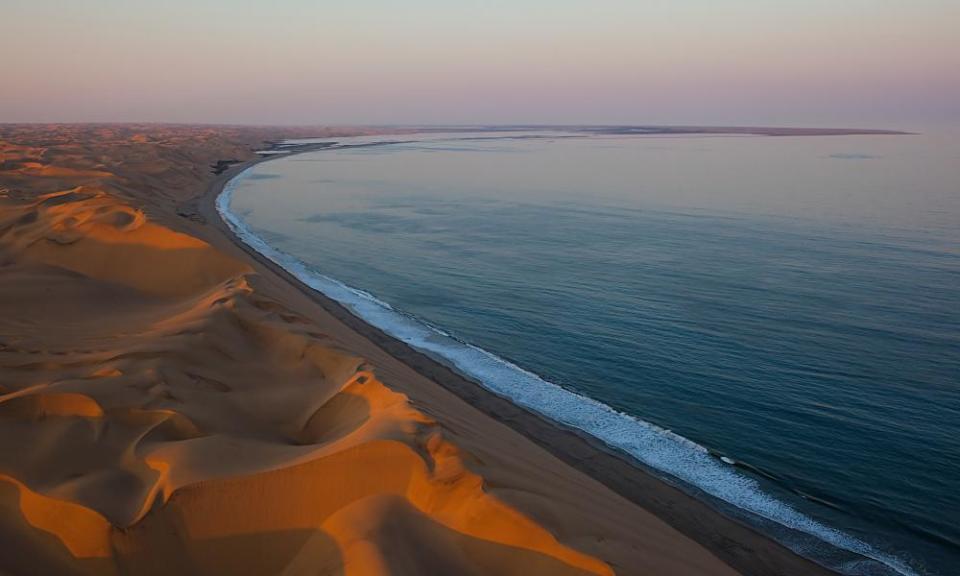How to save the high street, by the towns that did it
December at last, and so time to take stock. It has of course been an annus horribilis, for many of us perhaps the worst year we have lived through.
And yet throughout 2020 we – and you – have remarked consistently on silver linings, on new things we’ve learned, on upsides and blessings and the kindness of strangers. It took a dreadful event to make us realise what we had to be grateful for.
This week it would be great to hear from you: what was the best of a bad year? The lesson you learned? The one thing you’ll take forward into 2021? Get in touch and we’ll showcase the best responses in a future column.
Before we proceed to this week’s list, a quick dip into the archives: it’s been a wretched time for retail, particularly but not only in the UK, with household high street names closing for business and thousands of jobs lost. The pandemic seems to be accelerating a dismal trend that has been threatening for years.
What is to be done? Here, three articles from our pre-pandemic back catalogue consider novel ways to reinvent our town centres in the UK, France and the Netherlands.
From bleak to bustling, in eastern France. Four-minute read
The Dutch mall that doesn’t sell stuff. Four-minute read
The high street that came back from the dead. Five-minute read
Other than that, it was a good week for vaccines, ersatz meat and Lisbon, as the following articles demonstrate:
Facebook to pay millions to license news. 90-second read
UK approves vaccine for rollout. Two-minute read
Lab meat goes on sale for first time. Two-minute read
Lisbon turns tourist flats into homes. Three-minute read
Prestigious prize for the woman who cleaned up the Bahamas. Three-minute read
Lucky numbers
The Red Cross and Red Crescent Societies are reporting a “massive surge” in volunteer numbers this year, “with hundreds of thousands of people joining the Red Cross Red Crescent family for the first time, all the while contending with the terrible impacts of Covid-19 on their own lives”, according to the organisation’s president, Francesco Rocca.
Elsewhere, fewer journalists have been killed in 2020 than in any year since 2002, according to the latest data from the Committee to Protest Journalists.
The UK has promised a reduction of 68% in carbon emissions by 2030 compared with 1990 levels – a big increase on previous commitments.
And countries responsible for 40% of the world’s coastlines have pledged to crack down on overfishing and plastic pollution over the next decade.

What we liked
This piece on the Conversation delved into the other great microbiological breakthrough of 2020: the new insights into protein folding, gleaned by the AI company DeepMind.
We also like the sound of Podium, a new platform matching freelancers with disabilities to new remote working opportunities.
And as great advocates of the four-day working week, we are keen to see how Unilever gets on with this new regime across its entire New Zealand workforce.
What we heard
On the subject of making winter bearable, Ian Bentley wrote in from Duluth, Minnesota, which is already buried in snow. Ian said the pandemic had shut down a lot of opportunities, forcing him to look closer to home for excitement.
What an opportunity that turned out to be! By searching a little, we discovered a back-country skiing group close to home, and an area touting Extreme Skiing not too far away (with $99 season tickets!). The mountain bike network (in winter: fat bikes) is still accessible. There are dozens of smaller Nordic ski areas within an hour or so and it’s a great opportunity to develop new skills (Nordic skate skiing, in my case).
The message here is that it can be surprising what you can find close to home. This is not just an advertisement for northern Minnesota but a more general message: whatever you normally do (indoor or outdoor) in winter, you can find alternatives close to home.
Janet Parsons wrote in with an uplifting tale of a charity reinventing itself through the pandemic.
Josie Charter coordinates a hardworking little charity that serves the poorest in Malawi. She used to fly out with donated goods – clothes, eyeglasses, football boots – in her bulging suitcases. There was never enough carrying space.
Covid hit and Josie couldn’t even go out to Africa. So she bought a 40ft shipping container with money from a wellwisher and appealed to everyone she knew to help her fill it for Malawi. Amazingly, Covid boosted the effort. Donations of good stuff just rolled in from people furloughed or stuck at home by the virus. They had time to clear out cupboards, lofts and garages.
A farmer offered land for the container. Social groups, churches and clubs shared Josie’s list of wants in emails and on social media: clothes, tools, bedding, knitting wool, rucksacks … She got phone calls offering goods, work, garages for collecting, and transport for delivery. Volunteers bagged, labelled and inventoried everything, repaired bicycles and old phones, cleared memory from used laptops and graded prescription eyeglasses. A sewing group that had enjoyed being together worked alone (for Covid safety) to make washable sanitary pads to keep Malawian girls in school every day of every month.
The container is currently at sea, rounding the Cape toward the east coast of Africa.
You can fund Josie’s work here.
Where was the Upside?
With corruption fighters in Afghanistan and Kazakhstan, who won a prestigious award this week.
Also, inside these wonderful theatrical Advent calendars, a delightfully different way to enjoy the festive countdown.

 Yahoo Movies
Yahoo Movies 
